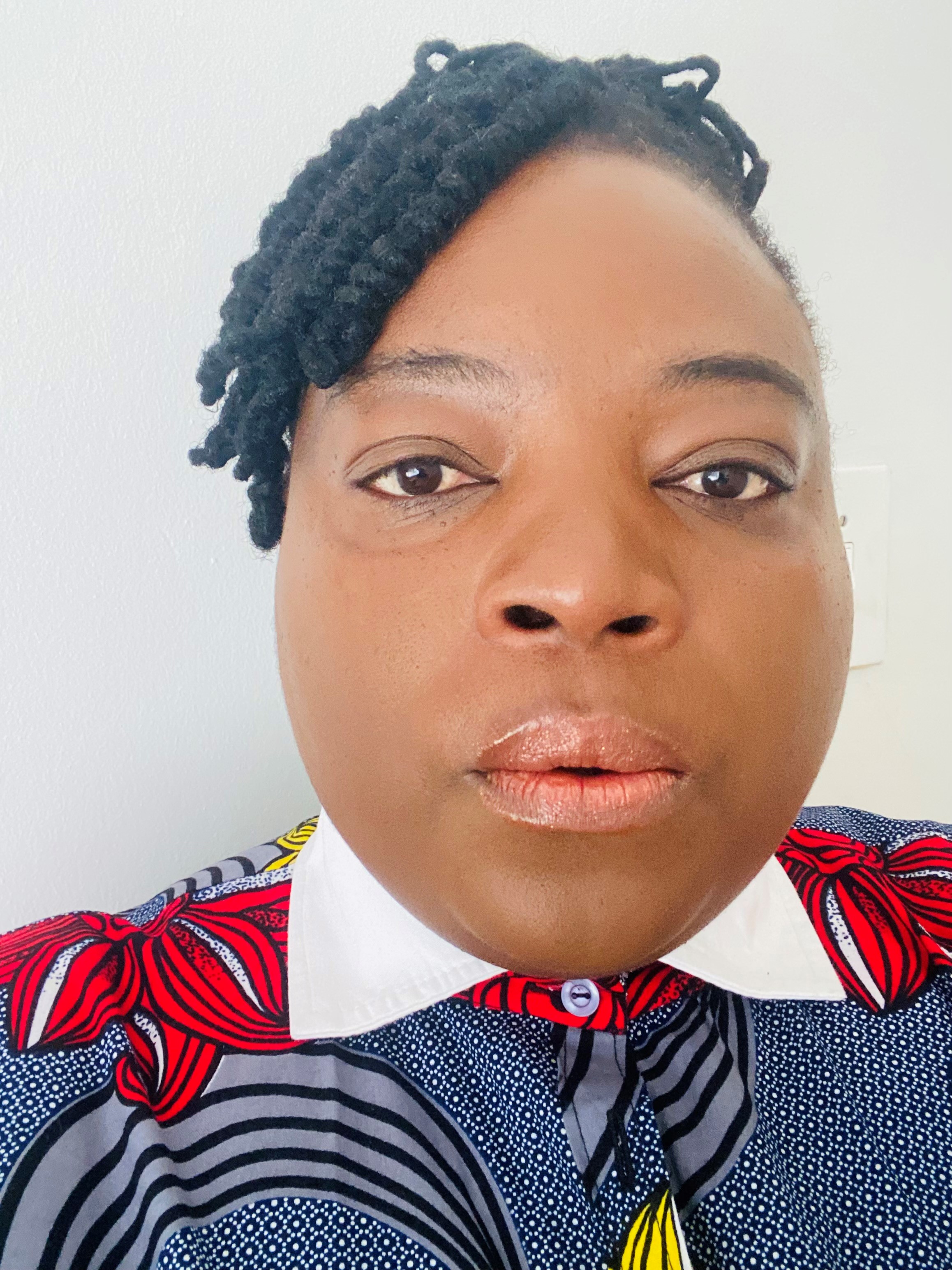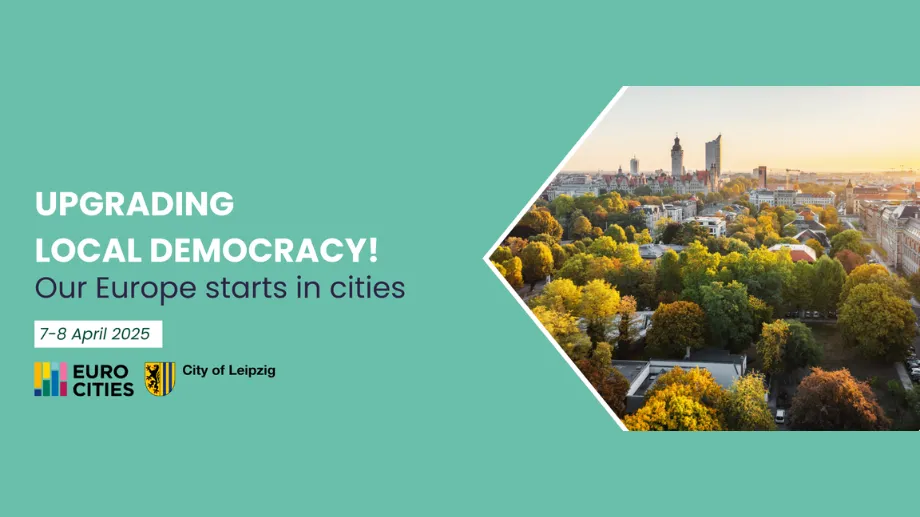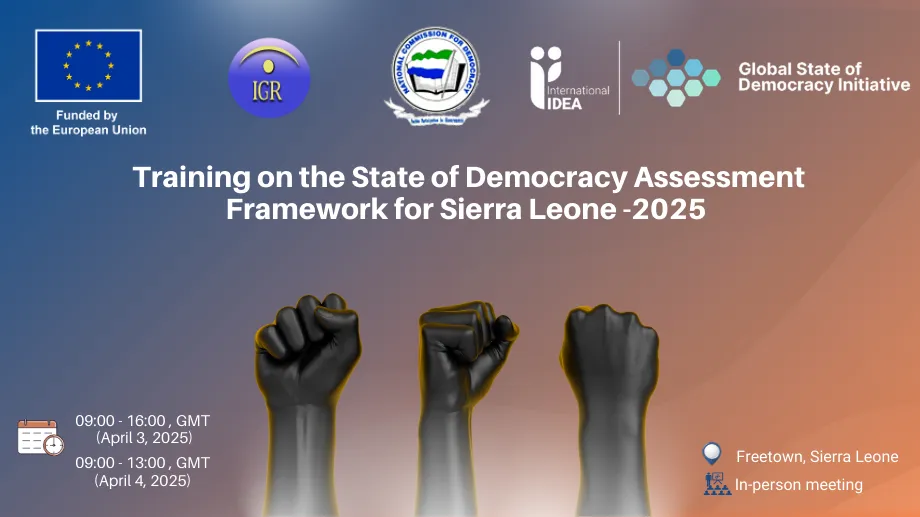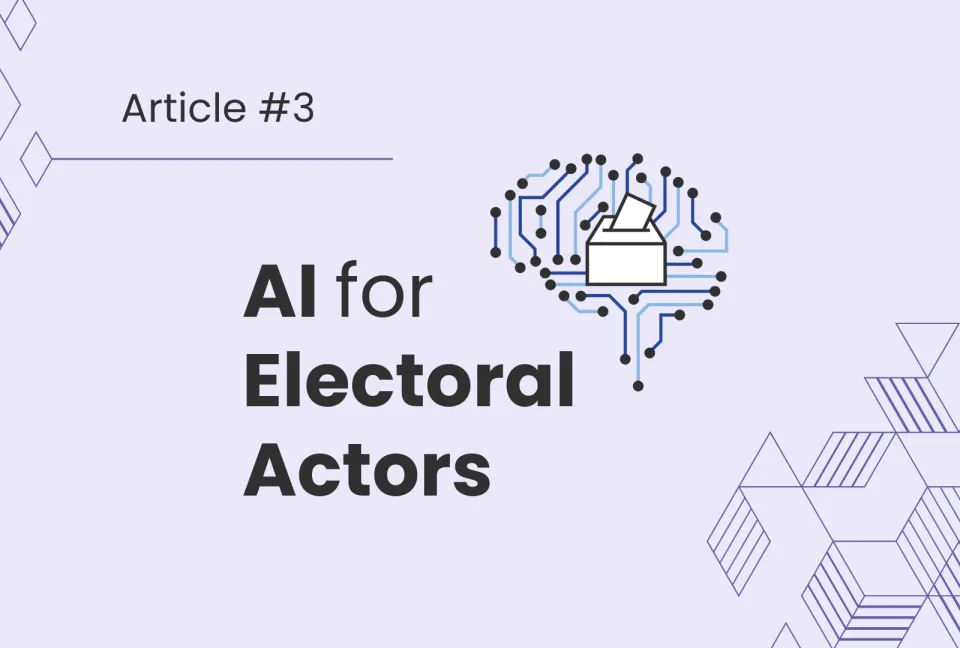Debunking social gender norms through the Young Women’s Empowerment Academies
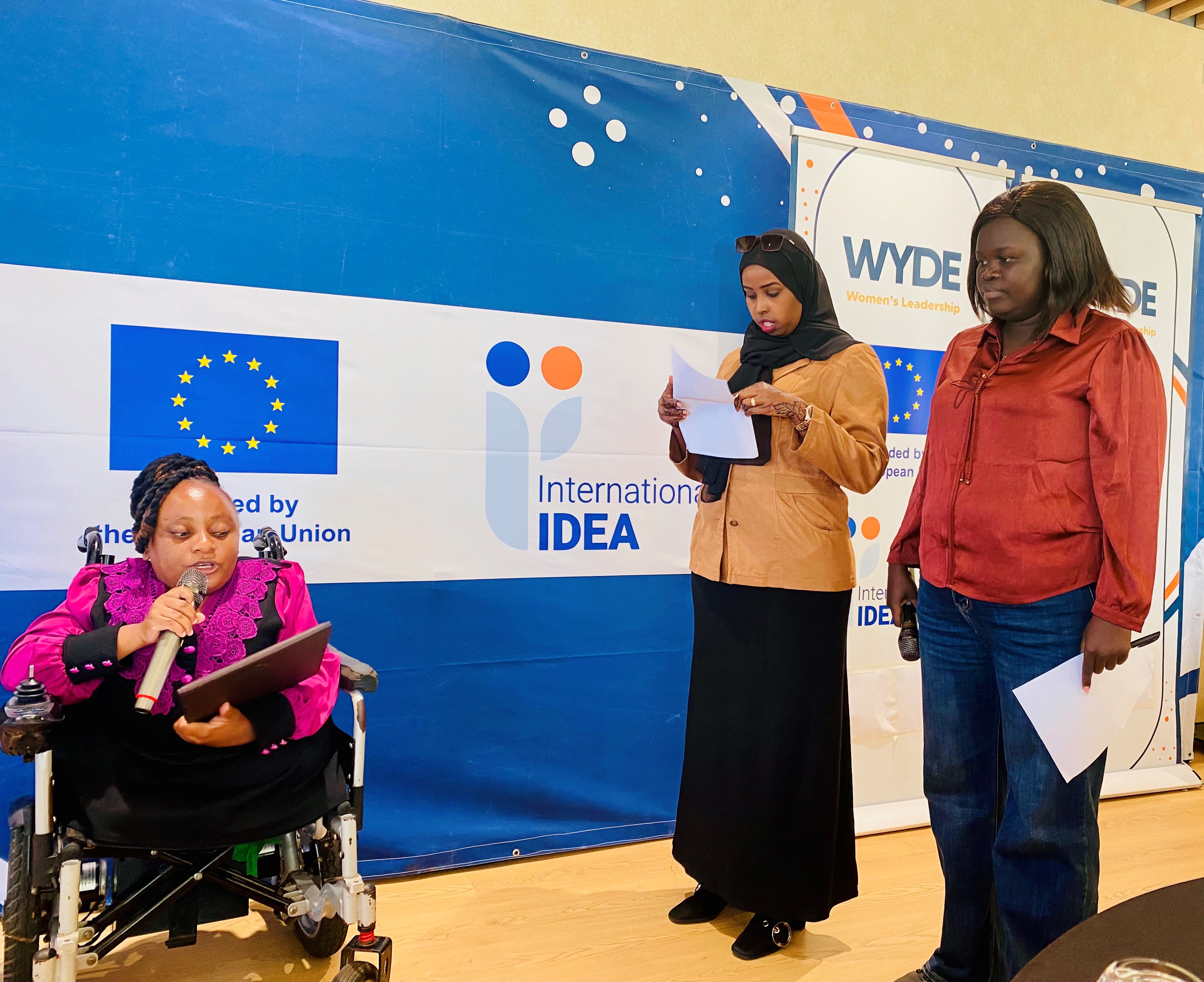
The recently concluded pilot young women’s empowerment academies on political participation convened by International IDEA through the European Union (EU) funded Women and Youth Democratic Engagement (WYDE) Women’s Leadership Initiative provided a space to debunk social gender norms that are barriers to political participation and identifying areas for transformation. The academies are an opportunity for learning, sharing and questioning existing social gender norms whilst providing practical solutions to inclusive democracy.
Young women politicians face a quagmire when they aspire to be politicians. The multilayered barriers they face are a result of how patriarchy is used as a resource in politics to silence women and keep them out of politics.
The framework of Access = Participation + Representation = Transformative has been key in dismantling patriarchy within politics, it is evident that a lot of hurdles still need to be overcome as we celebrate IWD2025. Shockingly, the pilot academies reveal how young women face abuse which is often inclusive of economic abuse as they vie for political positions. The godfather syndrome in politics continues to gnaw its way to power through minimising the role of young women in politics contrary to the fact that Sub-Saharan Africa has a youthful population.
While some male political actors are agents provocateurs in perpetuating patriarchy, there is a growing pool of male advocates who promote young women’s political participation. It was evident from the Southern and Eastern African pilot academies held in February 2025, that political leadership from the party structures needs to be inclusive. The role of the media especially in this digital age is important in transforming social gender norms in politics through increasing women sources in political news, guarding against meritocracy targeted at only women politicians, preventing online violence against women politicians that is technology facilitated and providing a space of solidarity for women politicians.
Acknowledging the contextual background and political environment of young women politicians is important when debunking social gender norms in politics. These social gender norms have ripple effects on how they manifest throughout the ecological model – from individuals, to community, to society and institutions. Whilst the academies acknowledged that transforming social gender norms takes time as it involves changing the mindsets and behaviours of individuals within political institutions, the role of political will accelerates this transformation. Hence, whilst patriarchy is questioning the role of gender quotas in politics, these are a demonstration of political will to correct historic imbalances of power in politics and guard against future inequalities.
The academies pointed out that the state of a country’s politics reflects the existing social gender norms. This is evident in the high levels of violence against women politicians which is a continuum of gender-based violence in a society – a demonstration of power by one gender over another. The young women politicians shared heart wrenching experiences of violence they have faced and continue to face in politics. The intersectionality of this violence with age, disability, socio-economic status, marital status and education amongst others is worrying. With only under five years to achieve Sustainable Development Goal Five (SDG5), many countries require a radical embrace of transformative female leadership.
While more countries acknowledge the scale of gender-based violence as an impediment to inclusive democracy and development, there is still a lack of political will to develop and enforce laws and policies that will explicitly protect young women politicians. The academies recognised the role of civil society in providing support and early warning systems that protect women politicians. However, more still needs to be done in Prevention, Responding and Supporting survivors of women's political violence.
As the world grapples with political turmoil and unrest in many areas, the academies highlighted the need to safeguard the gains made in protecting women politicians in conflict areas. Additionally, women politicians in conflict areas need to be consciously included in peace negotiations and peacebuilding as part of deliberate efforts to transform social gender norms for inclusive democracy.
Debunking resource constraints for young women to participate effectively in politics is important. Whilst patriarchy is a resource for male political actors to ascend to power, young women face financial, information, technology and networking resource constraints as they vie for political positions. The economic violence that young women in politics face when political parties distribute campaign finance and materials should not be overlooked. The multiple roles that women play at home due to existing social gender norms that have boxed them into reproductive roles compared to productive roles limit their access to political resources. The academies noted that these roles manifest within the political institutions where women are reduced to carers and political party mobilisers whilst male actors make strides in consolidating political power.
There is hope for transformative and inclusive democracy, there is reason to celebrate IWD2025. The passion, the solidarity and the capacity that the young women politicians from the academies have to gain political seats is a reason to celebrate. This is a pool of young women who have taken advantage of the digital spaces to amplify their voices, to mobilise, to organise and to create positive change in politics. Networking and solidarity have been identified by the young women as key tools for growth and self-care. A key output is their commitment to document their stories through personal development plans and stories of change so that no patriarchal element can write herstory.
Indeed, the academies are a necessary debunking platform for social gender norms to enable young women’s voices, choice and control in their political journeys.
Celebrating young women politicians, celebrating transformative social gender norms in politics!
